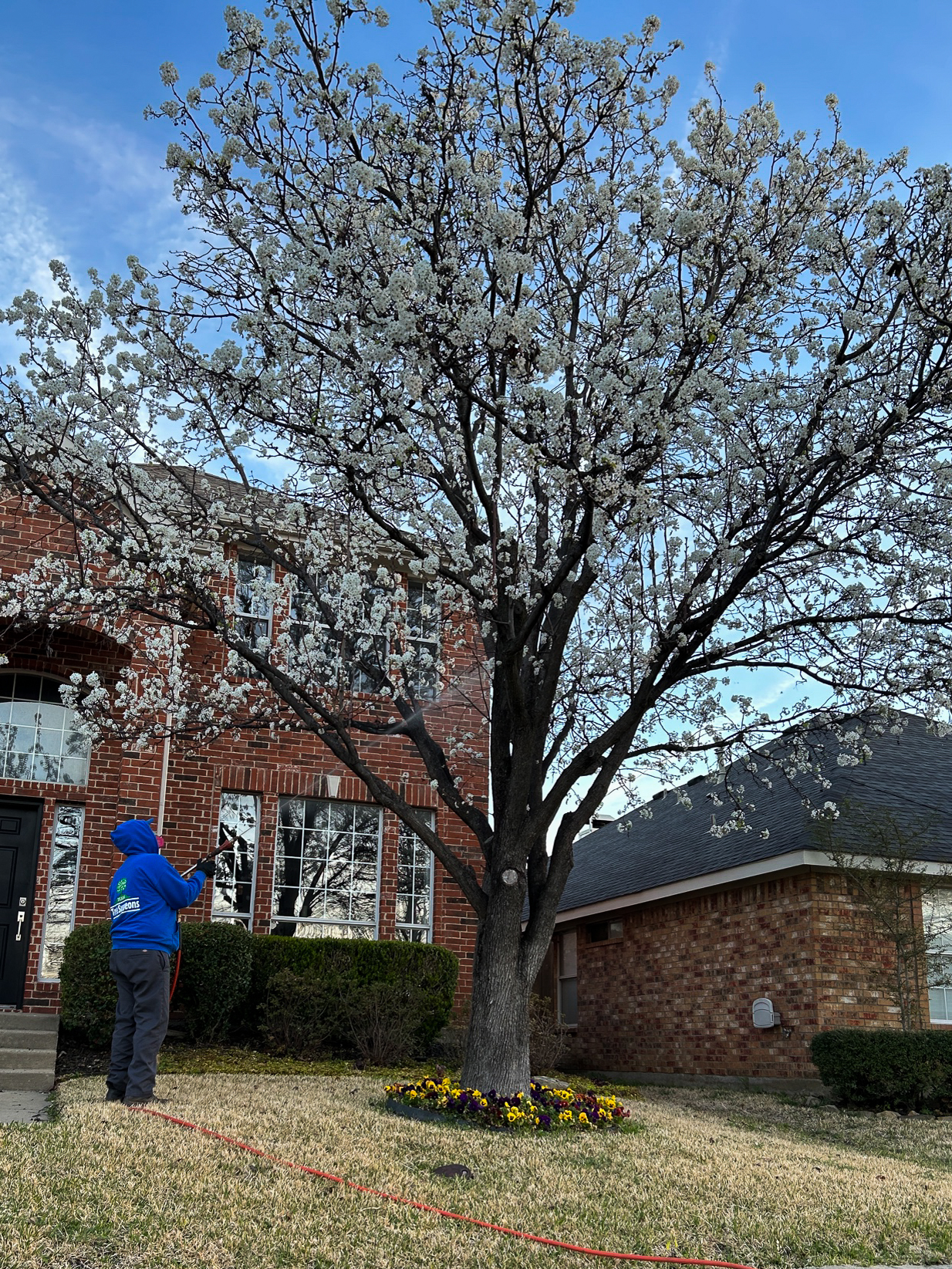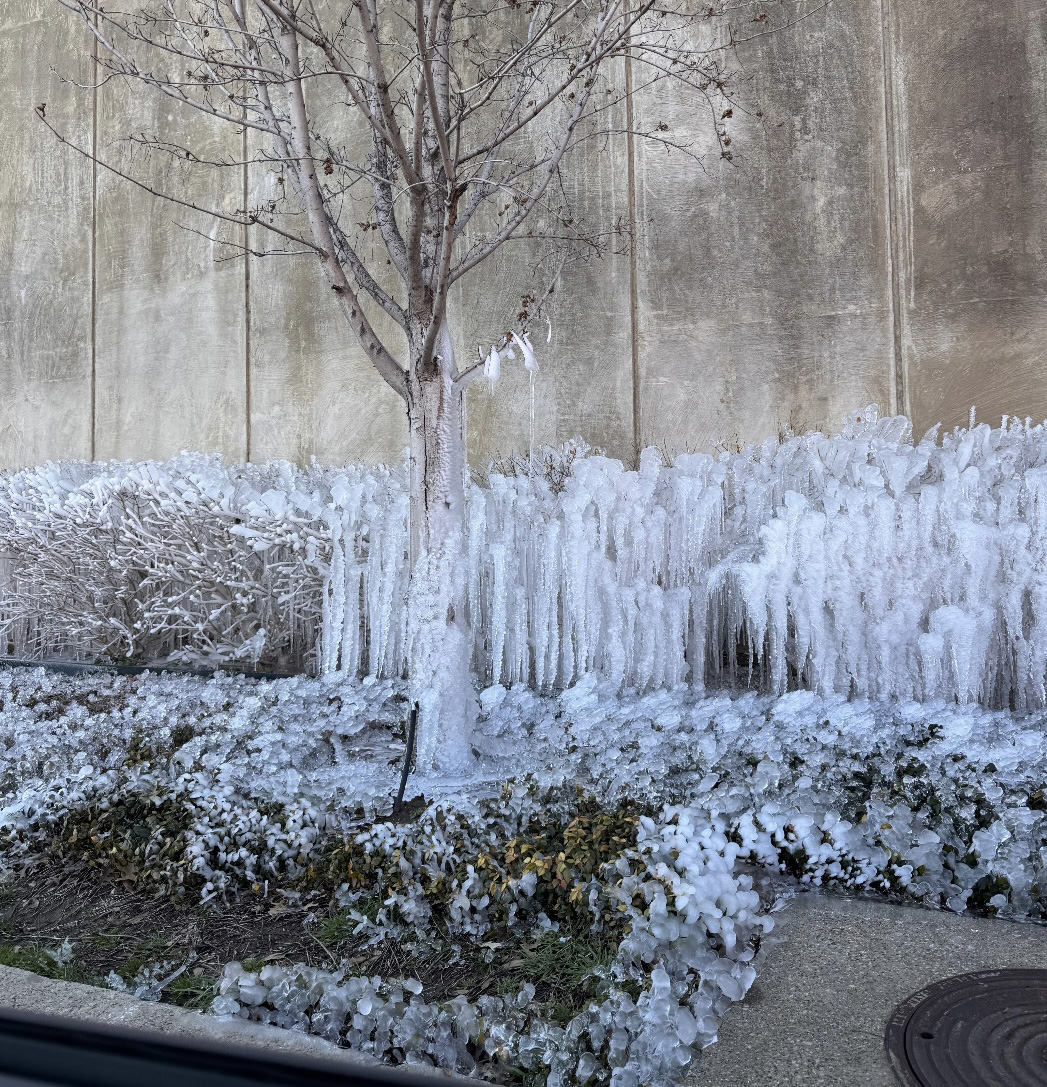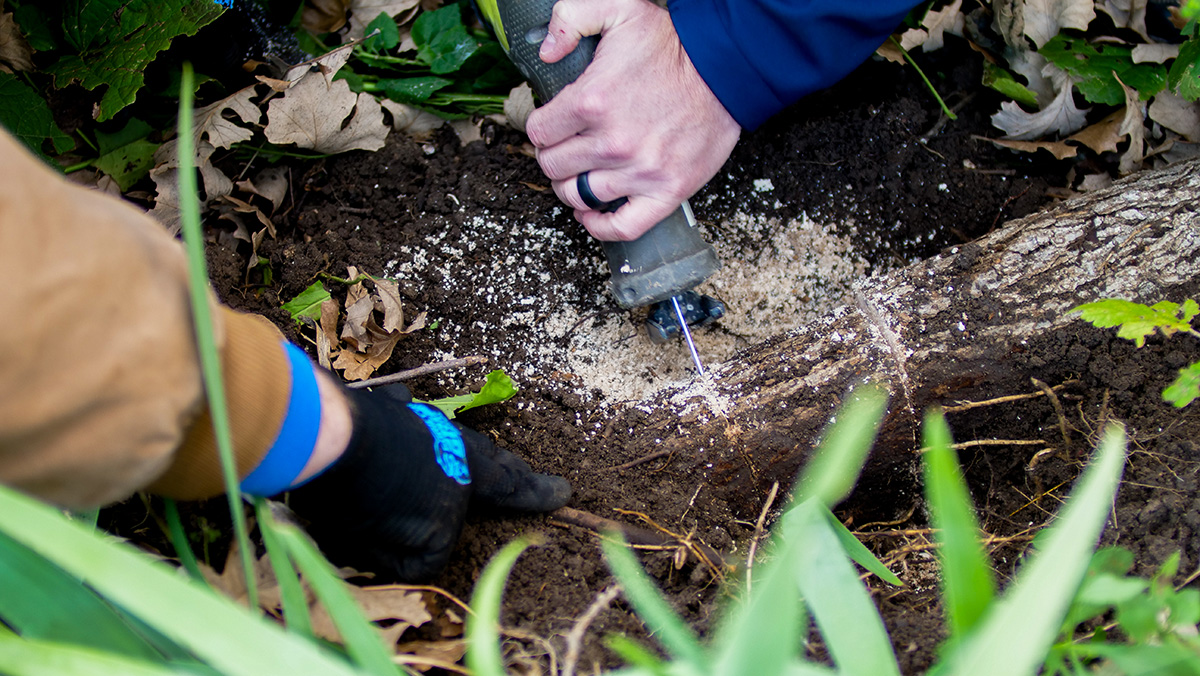Hackberry Leafrollers are Back!

In September 2022, we saw an infestation of small, green worms and their webs on hackberries in North Texas. With the reappearance of the hackberry leafroller moth larvae in August 2023, our recommendations for how to deal with them are a little different.
What’s Changed?
While we usually see hackberry leafroller caterpillar activity in the fall, in 2023, we are beginning to see them while we are still in the heat of summer. Additionally, many hackberries in the DFW are are still recovering from leafroller activity last year and have damaged canopies as a result. The intense heat and drought conditions of 2023 have resulted in an urban forest that is already under extreme stress. Hackberry trees that would normally handle leafrollers easily are now less capable of resisting the pests’ damage. Additionally, there are new recommendations for chemical controls.
What Can We Do about Hackberry Leafrollers in 2023?
While there are no insecticidal treatments that are effective against hackberry leafrollers once the webs appear, it is important to take steps now to ensure that trees bounce back from an infestation and are better prepared for next year.
- Do not apply a spray insecticide to try to kill the caterpillarsThis is not generally effective and will offer no long-term benefits
- DO NOT USE HIGH NITROGEN FERTILIZERS.
- These products cause trees to rapidly put out new growth which can use up the energy stores the trees need to resist pest activity
- NEVER USE “WEED AND FEED” PRODUCTS near your trees
- Especially during times of drought and reduced moisture, adding herbicides to the soil can be deadly to trees that are already suffering from a lack of nutrients and other resources
- If possible, remove any visible caterpillars and their webs
- Properly dispose of leafroller larvae by burning or by bagging in plastic and putting in the garbage.
- WATER, WATER, WATER!
- Proper watering, and even aggressive watering during extended dry periods, is the most important step you can take to bolster your trees’ health
- Apply soil amendments to help increase the amount of nutrients in dry, desiccated soil
- Organic products can be utilized that do not contain an excessive amount of nitrogen and will not cause unsustainable growth
- Installing mulch and compost around your trees is always a good idea, as it helps the soil maintain a constant temperature and moisture level, and it adds nutrient-rich organic material
- Consider applying systemic insecticides in the late winter or early spring that can help inoculate your trees
- It is important to introduce insect control measures into the tree’s circulatory system at the appropriate time
- Contact a local ISA Certified Arborist® to evaluate your trees and make specific recommendations
- Hackberry trees are prone to a fungal root rot caused by Kretzschmaria deusta and are made more susceptible when stressed by other factors
- In the spring, evaluate trees to remove any dead wood and assess health
Treat for Leafrollers in the Late Spring or Early Summer
Hackberry leafrollers only have one generation per year, laying eggs on tree leaves in the fall, which hatch the following year. In North Texas, this occurs around May. Within a few weeks of the hatching, a soil-injected product containing acephate can be used, with a possible second application after a few weeks if activity is still seen. If you see leafroller webs this year, contact an arborist to get on the schedule for pesticide application next spring.
At Texas Tree Surgeons, we love trees and we love our community! This summer has been rough on all living things in North Texas and we are saddened to see another threat to Hackberry trees has become active while we are still dealing with drought and heat. Our team of certified arborists is ready to come out and assess your hackberries and all your trees to provide recommendations for soil amendments and insect control tailored to their specific needs. Contact us today!
Related Blogs
Similar blogs related to this topic


Fireblight
Fireblight is a common yet destructive bacterial disease affecting various species of fruit trees. It’s essential to identify it early and take action to prevent its spread. In North Texas we really only see this…
Read more

Help Your Trees Recover After a Freeze
If you missed the reminder about doing a deep watering before the freeze you may be concerned about your tree’s health. Follow these steps to ensure a healthy recovery for your trees after a freeze.…
Read more

Root Pruning
Root pruning is more damaging to mature trees than it is for younger more vigorous trees. With that said, at Texas Tree Surgeons we can prune roots of healthy trees. Using certified arborists will minimize…
Read more
